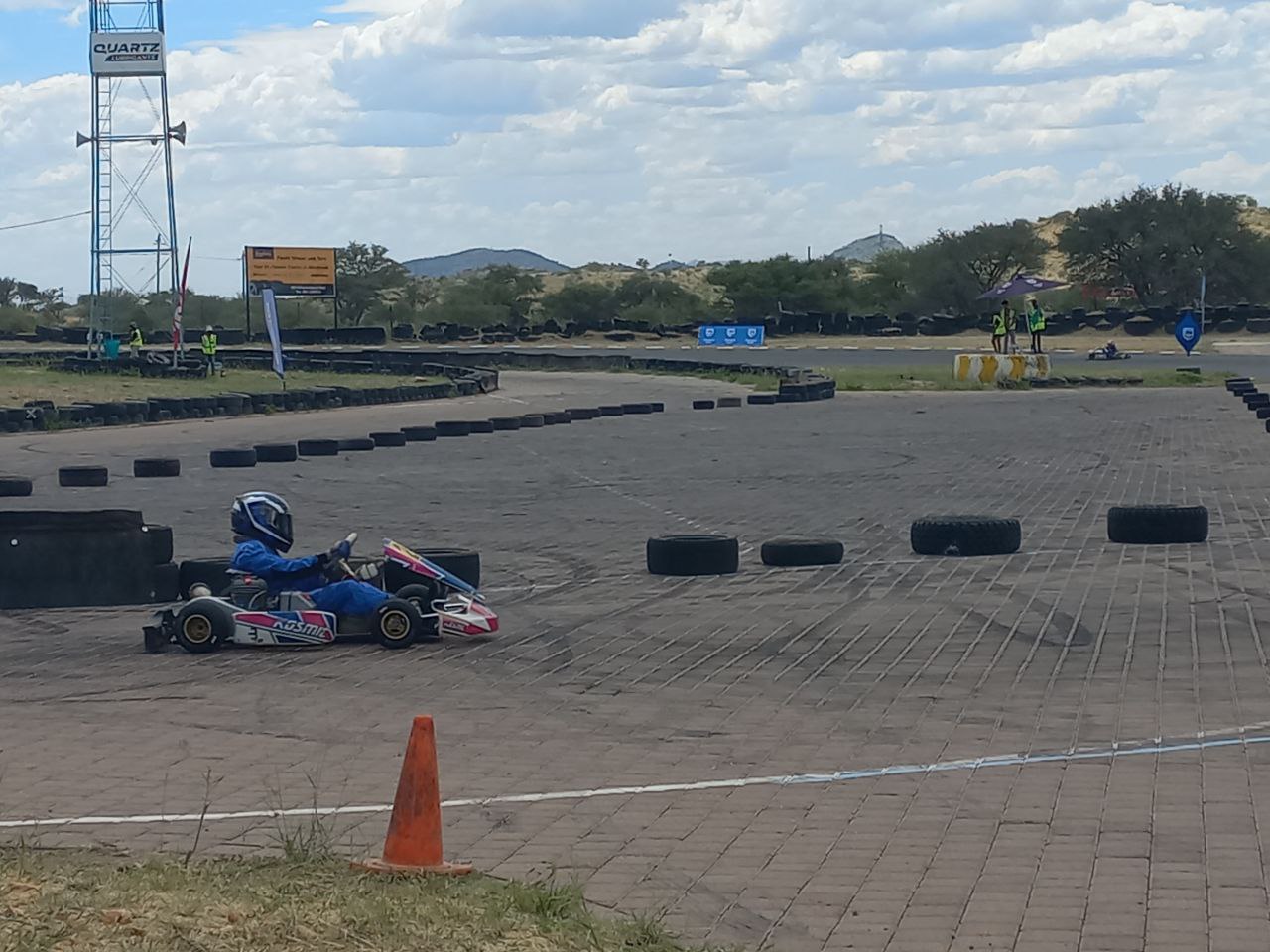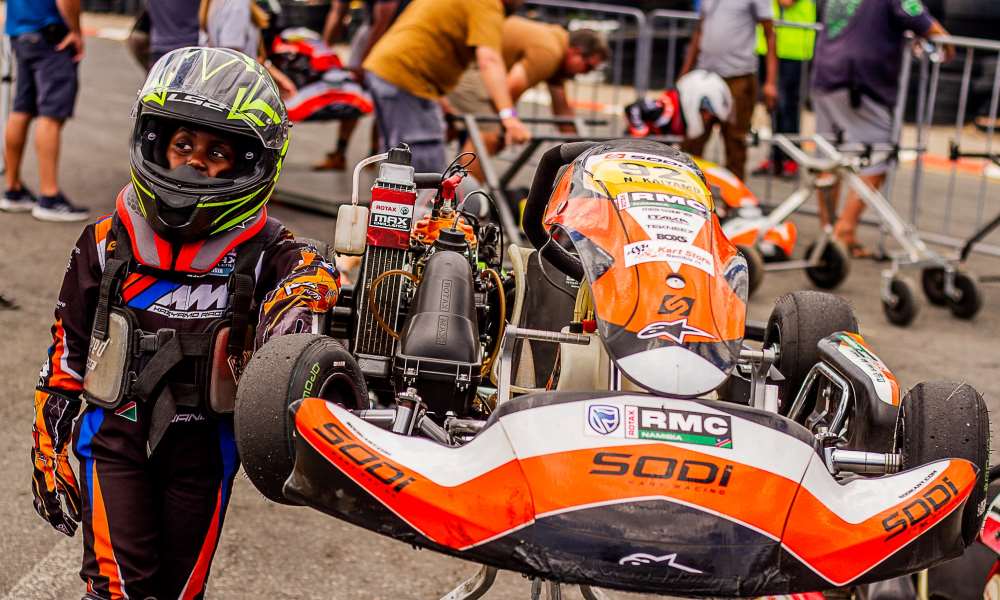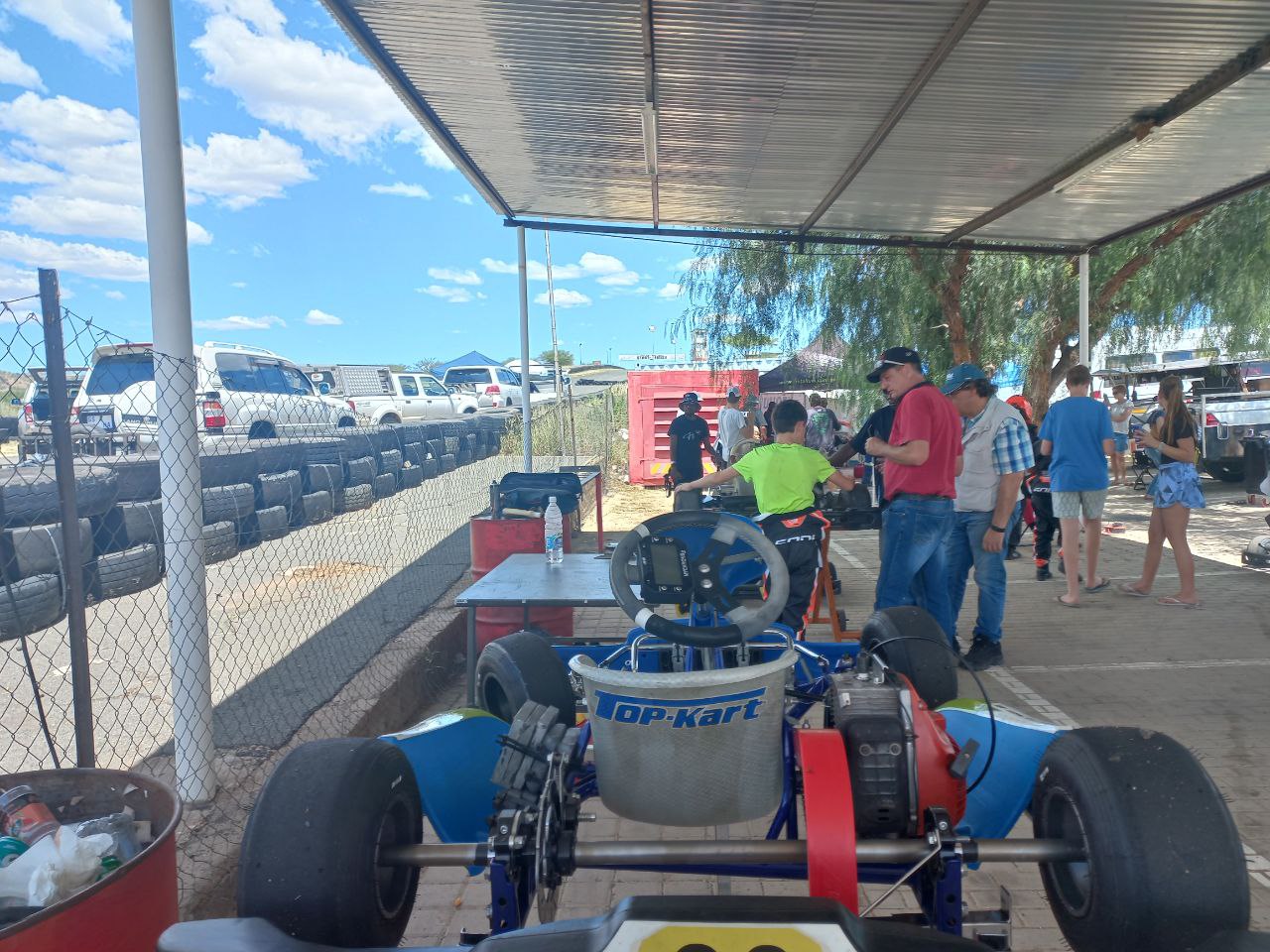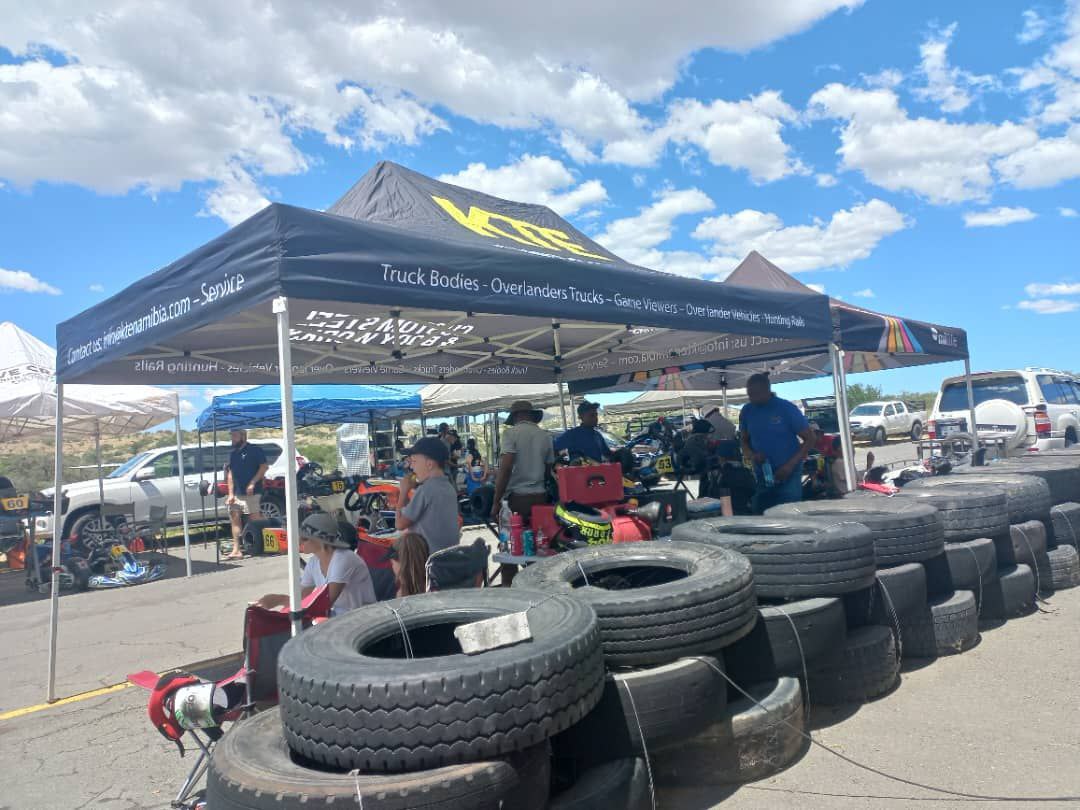Go-karting’s bright future in Namibia
A growing sport
Namibia's national go-karting organisation plans to improve and build more racing tracks and believes the adrenaline-fuelled sport is heading towards a bright future.
Go-karting is the downsized version of the popular sport known as Formula 1 (F1).
Also believed to be harder, Romain Grosjean, a Swiss-French professional racing driver, said: "Go-karting is now more physically difficult than racing in Formula 1. Why? Because you are pushing all the time. But in F1, we are saving fuel and also the tyres."
Karting is a form of racing in a small, four-wheel vehicle known as a go-kart, in which drivers speed around a track and compete with each other to be the first past the finish line.
Jörg Goldbeck, founder of National Go-Karting, said: "Most people are familiar with commercial karting, whereby here in Windhoek one can go to SKW and drive the rented karts. We do racing karts, which is basically the same concept, but you buy your own kart and pitch up to races."
Exciting start
Go-kart racing is not a cheap sport, especially if you wish to own your own kart. There are entry-level prices where drivers can buy second-hand karts that are more affordable. Goldbeck said "new drivers usually buy second-hand karts and practice before they think of upgrading to better karts."
Justus Beulker, who has been driving for more than three years, when asked why he started go-karting, said, "I always watched Formula 1 with my grandpa, and Jörg Goldbeck always wanted to race from childhood, so he took me with him to the track, I jumped in a kart, and the adrenaline pumped me up, so that’s how it all started."
Right path
Go-karting is a beautiful sport that gets the adrenaline pumping, but it does come with some challenges.
"Sometimes you are ready for the race and out of nowhere your kart doesn’t want to start or it has an issue, which can take up to half the day to fix, which becomes annoying sometimes," Beulker said.
"Fear also plays a huge role, and can be a challenge sometimes, but once you get over it, you are good to go," he added.
When asked where he sees kart racing in the next five years, Goldbeck said: "We want to get the African Open Championship hosted in Namibia; that’s up there."
He said the organisation also plans to improve and build more racing tracks.
"We are on the right path, and we are heading towards a bright future."
Also believed to be harder, Romain Grosjean, a Swiss-French professional racing driver, said: "Go-karting is now more physically difficult than racing in Formula 1. Why? Because you are pushing all the time. But in F1, we are saving fuel and also the tyres."
Karting is a form of racing in a small, four-wheel vehicle known as a go-kart, in which drivers speed around a track and compete with each other to be the first past the finish line.
Jörg Goldbeck, founder of National Go-Karting, said: "Most people are familiar with commercial karting, whereby here in Windhoek one can go to SKW and drive the rented karts. We do racing karts, which is basically the same concept, but you buy your own kart and pitch up to races."
Exciting start
Go-kart racing is not a cheap sport, especially if you wish to own your own kart. There are entry-level prices where drivers can buy second-hand karts that are more affordable. Goldbeck said "new drivers usually buy second-hand karts and practice before they think of upgrading to better karts."
Justus Beulker, who has been driving for more than three years, when asked why he started go-karting, said, "I always watched Formula 1 with my grandpa, and Jörg Goldbeck always wanted to race from childhood, so he took me with him to the track, I jumped in a kart, and the adrenaline pumped me up, so that’s how it all started."
Right path
Go-karting is a beautiful sport that gets the adrenaline pumping, but it does come with some challenges.
"Sometimes you are ready for the race and out of nowhere your kart doesn’t want to start or it has an issue, which can take up to half the day to fix, which becomes annoying sometimes," Beulker said.
"Fear also plays a huge role, and can be a challenge sometimes, but once you get over it, you are good to go," he added.
When asked where he sees kart racing in the next five years, Goldbeck said: "We want to get the African Open Championship hosted in Namibia; that’s up there."
He said the organisation also plans to improve and build more racing tracks.
"We are on the right path, and we are heading towards a bright future."







Comments
Namibian Sun
No comments have been left on this article